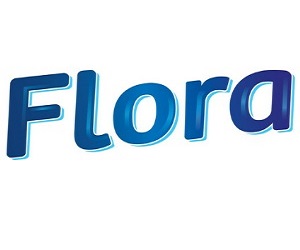The Ministry of Energy has debunked claims by the National Democratic Congress (NDC) that Ex-pump prices of petroleum products have been increased by 7%.
The Ministry explained that,” Ex-pump prices have not increased by 7% as purported by the NDC. As of today, Total Energies is the only OMC that has revised its price upwards from GHS6.52 per liter to GHS6.80 per liter; that is a 4.29% increase”.
Public relations officer at the Energy ministry Kwasi Obeng-Fosu in a statement further explained that, “since the implementation of the price deregulation policy in July 2015, the responsibility of setting ex-pump prices lies with the various Bulk Import, Distribution and Export Companies (BIDECs) and Oil Marketing Companies (OMCs)”.

At a press conference on Monday October 18, 2021, National Communications Officer of the (NDC) Sammy Gymfi said “Ghanaians have once again been slapped with another increase in pump prices of fuel by the insensitive and clueless Akufo-Addo/Bawumia administration. Only yesterday, the price of diesel and petrol was increased by 7%”.
But in a response, Kwasi Obeng-Fosu said, “changes in prices at the pumps almost every two weeks are not dictated by government but are a direct response to changes of prices of petroleum products on the world market and the strength of the Ghana Cedi (GHS) against the US Dollar (USD), as well as the keen competition amongst the various players competing to sell their products to the motoring public”.
Read below the full statement from the Energy Ministry.
Responses to the NDC Press Conference on Rising Fuel Prices on 18th October 2021
1. Ex-pump prices have not increased by 7% as purported by the NDC. As of today, Total Energies is the only OMC that has revised its price upwards from GHS6.52 per liter to GHS6.80 per litre; that is a 4.29% increase. Other OMCs are yet to announce their prices for the new window. We believe competition will even force this increase further down to a level below 3%.
2. Since the implementation of the price deregulation policy in July 2015, the responsibility of setting ex-pump prices lies with the various Bulk Import, Distribution and Export Companies (BIDECs) and Oil Marketing Companies (OMCs). As a result, changes in prices at the pumps almost every two weeks are not dictated by government but are a direct response to changes of prices of petroleum products on the world market and the strength of the Ghana Cedi (GHS) against the US Dollar (USD), as well as the keen competition amongst the various players competing to sell their products to the motoring public.
3. Areas of the price build-up of petroleum products controlled by Government is in the form of the taxes and levies imposed on these products. It is important to note that the sum of the taxes on petrol in January 2009 was only 28 pesewas per litre and rose to about 146 pesewas per litre by December 2016. This represents a 426% increase in the taxes and levies. From January 2017 to date the sum of taxes has increased by only 30% from 146 pesewas to 190 pesewas per litre.
4. Prior to assumption of power by this government the Special Petroleum Tax (SPT) was an ad valorem tax of 17.5% on the ex-depot price of petroleum products. The rate was reduced by Government to 15% in March 2017 and was further converted to a specific tax of 46 pesewas in February 2018. At today’s price of GHS6.52 per litre, the SPT would have been about 83 pesewas per litre, if not for the earlier interventions made by government. This shows that the current Government envisaged the hardships of Ghanaians and took proactive steps to reduce the burden accordingly.
5. To add to the above, the government has on several occasions between December 2017 and February 2020 intervened in the pricing of petroleum products by either reducing or completely removing the Price Stabilisation and Recovery Levies (PSRLs) in the price build-up to cushion consumers from the impact of rising prices of products on the world market. These interventions have cost government about GHS510 million in revenue loss over that period.
6. As mentioned above, the price of fuel is also influenced by the exchange rate. The exchange rate saw rapid depreciation of about 237% between January 2009 and December 2016 when it moved from around GHS1.22/USD to GHS4.10/USD. From January 2017 to date, the exchange rate has moved from GHS4.1/USD in January 2017 to around GHS6.2/USD representing a depreciation of just about 51%. Under the current Government, it has depreciated at a slow rate and in recent times, almost remained stable when most currencies were trending downwards moving from around today; this is about 51% depreciation.
7. The price of petroleum products on the world market is something government has no control over and it is not Government that dictates the prices of fuel at the pumps in Ghana as it did before July 2015. It is worthy to note that the price of petrol on the world market in December 2016 was about $504 per metric tonne. This has increased by about 55% to around $783 per metric tonne today. If prices on the world market today were at the levels they were in December 2016, the price of petrol for example would have been about GHS5.49 per litre.
8. The ex-pump price of petrol saw a cumulative increase of about 357% between January 2009 and December 2016 (from GHS0.82/Lt to GHS3.75/Lt). However, the price has increased by only about 60% from January 2017 to date (from GHS4.06/Lt to GHS6.50/Lt).
9. All of the above point to the fact that indicate that the prices of petroleum products would have been much higher today if the NDC was still in power.
Kwasi Obeng-Fosu
PRO – Min of Energy




